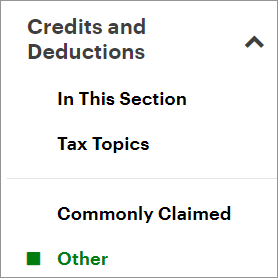British Columbia renter's tax credit
The British Columbia (B.C.) renter's tax credit introduced in tax year 2023 provides a credit based on annual income. This tax credit gives:
- $400 to low-and moderate-income renter individuals and families with an adjusted income of $60,000 or less.
- Individuals and families with an adjusted income greater than $60,000 and less than $80,000 may receive a reduced amount.
In 2023 and following tax years, you can claim the renter’s tax credit if you meet the following:
- During the year:
- You lived in a rental unit in British Columbia under a tenancy agreement, licence, sublease agreement, or similar arrangement for at least 6 one-month periods.
- Rent was paid for that rental unit.
- On December 31 of the tax year, you were a resident of British Columbia, and you were one of the following:
- 19 years of age or older
- A parent
- Cohabiting with a spouse or common-law partner
The following are key terms for the bolded words above.
| Terms | Definition |
| Rental unit |
A Rental unit is a living accommodation in British Columbia. This could be any of the following:
If the unit was rented for at least 6 one-month periods in the year and rent was paid, the following units are considered:
|
| Rent |
Rent must be paid on the rental unit. Rent does not include amounts paid:
|
You cannot claim the renter’s tax credit if you:
- Are a cohabitating spouse or common-law partner of a renter who has already claimed the credit for the tax year.
- Were in a prison or similar institution on December 31 and were there more than 6 months during the year.
- Were either an employee of a foreign country or a family member/servant of the employee of a foreign country.
- Die before the end of the year.
Note: In the following scenarios:
- Only one credit can be claimed even if they are living and renting separately:
- A tenant who is living in the long-term care facility is married or living in a common-law relationship on December 31
- The spouse or common-law partner who also meets all the criteria for the B.C. renter’s tax credit
- Both can claim their own renter’s tax credit if:
- Tenants who rent and occupy a rental unit under a rental or tenancy agreement together but are not married or in a common-law relationship with each other on December 31. For example, roommates.
For the 2025 tax year, with an adjusted income:
- of $60,000 or less: $400 is the maximum renter’s tax credit you can receive.
- that exceeds $60,000: the credit is reduced by 2% of the amount.
- $80,000 and over: the credit is reduced to zero.
The amount of the credit is determined by your adjusted income, it is not based on the amount of rent that is paid. Any rental subsidy you receive for the rental unit will not reduce the B.C. renter's tax credit you may receive.
Adjusted income is the total of your net income and your spouse or common-law partner’s net income (if applicable) with certain adjustments. Adjustments are the same as those used in the calculation of the adjusted family net income used for determining other tax credits.
Note: You must include your spouse or common-law partner’s net income for the year, even if they are not eligible for the credit.
The adjusted income threshold amount of $60,000 will be adjusted for inflation each year. For example, in tax year 2024, the adjusted income threshold will be increased to $63,000 and the credit will be reduced to zero at $84,000.
Follow these steps in H&R Block’s 2025 tax software:
Before you begin, make sure you’ve told us that you lived in British Columbia on December 31, 2025.
-
On the left navigation menu, under the Credits & deductions tab, click Other.

- Under the SPECIFIC CREDITS FOR YOUR PROVINCE heading, select the checkbox labelled British Columbia Renter’s Tax Credit, then click Continue.
- When you arrive at the British Columbia Renter's Tax Credit page, enter your information into the tax software.

